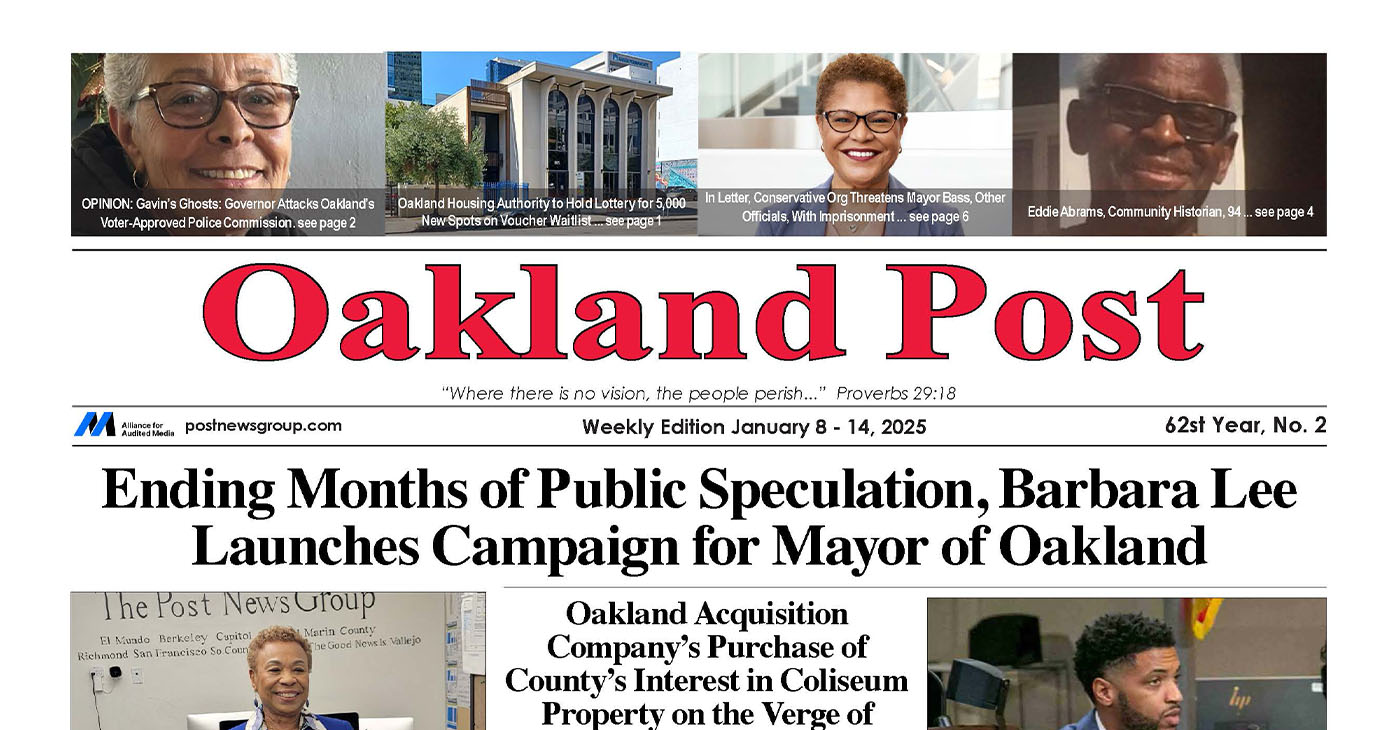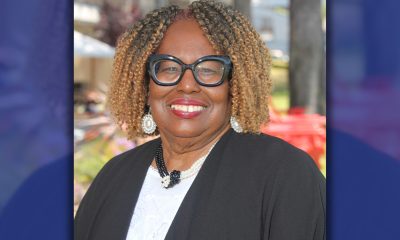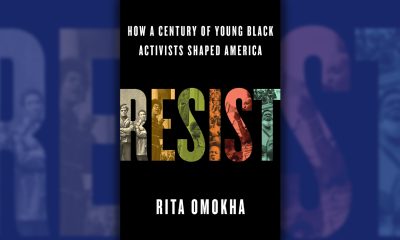National
Selma Civil Rights March Still Vivid for US Rep John Lewis

In this March 7, 1965 file photo, John Lewis, center, of the Student Nonviolent Coordinating Committee, is forced to the ground by a trooper as state troopers break up the demonstration on what has become known as “Bloody Sunday” in Selma, Ala. (AP Photo)
ALEX SANZ, Associated Press
ATLANTA (AP) — Forty-nine years after John Lewis and fellow marchers tried to cross the Edmund Pettus Bridge in Selma, Alabama, the memories of “Bloody Sunday” are still vivid in his mind. It was one of the defining moments of the civil rights era.
“We were beaten, tear gassed, trampled and chased by men on horseback,” said Lewis, a civil rights activist and longtime Democratic congressman from Georgia. “Many of us accepted the way of non-violence as a way of life, as a way of living. We were willing to be arrested, to be jailed. We accepted the beatings. And we never gave up.”
In a recent interview with The Associated Press, Lewis — who is portrayed by the actor Stephan James in the historical drama “Selma” — said the timing of the film’s release was fitting and appropriate after protests of grand jury decisions not to indict white police officers in the deaths of black men in Ferguson, Missouri; and New York.
“Selma,” the film co-written and directed by Ava DuVernay, is based on the 1965 marches from the Alabama cities of Selma to Montgomery, led by the Rev. Dr. Martin Luther King, Jr.
“It is very powerful. It is very moving. It is real. It is so real,” Lewis said. “It says something about the distance we’ve come in laying down the burden of race.”
The son of sharecroppers, Lewis grew up on a family farm outside Troy, Alabama, and attended segregated public schools. During the civil rights movement, he organized sit-in demonstrations at segregated lunch counters in Nashville, Tennessee.
In 1963, he addressed the historic March on Washington — two years before he and hundreds of others marched on “Bloody Sunday.”
On March 7, 1965, Lewis and others were beaten by state troopers as they began to march to Montgomery.
The march is credited with helping build momentum for passage that year of the landmark Voting Rights Act, which opened polling places to millions of blacks and ended all-white governments in the South.
“We broke down those signs that said, ‘White Waiting,’ ‘Colored Waiting,’ ‘White Men,’ ‘Colored Men,’ ‘White Women,’ ‘Colored Women.’ We got a Voting Rights Act passed 50 years ago, a Civil Rights Act passed. But, we still have a distance to go,” said Lewis.
“In many communities today, the question of race is still very real. You can feel it. You can almost taste it. But, you cannot deny the fact that America is a different America. Even in the heart of the Deep South, those signs are gone. And, they will not return. People registered. And, they are voting.”
Lewis was first elected to Congress in 1986. He was re-elected to a 15th term in November.
Copyright 2015 The Associated Press. All rights reserved. This material may not be published, broadcast, rewritten or redistributed.
Activism
Oakland Post: Week of January 8 – 14, 2025
The printed Weekly Edition of the Oakland Post: Week of January 8 – 14, 2025

To enlarge your view of this issue, use the slider, magnifying glass icon or full page icon in the lower right corner of the browser window.
#NNPA BlackPress
Supreme Court Decision Confirms Convicted Felon Will Assume Presidency
NNPA NEWSWIRE — In a 5-4 ruling, the court stated that Trump’s concerns could “be addressed in the ordinary course on appeal” and emphasized that the burden of sentencing was “relatively insubstantial” given that Trump will not face prison time. Chief Justice John Roberts and Justice Amy Coney Barrett joined the court’s three liberal justices in the majority, with four conservative justices dissenting.

By Stacy M. Brown, NNPA Newswire Senior National Correspondent
@StacyBrownMedia
The Supreme Court on Thursday rejected President-elect Donald Trump’s emergency request to block criminal proceedings in his New York hush money case, ensuring that a sentencing hearing will proceed as scheduled on Friday. The decision makes it official that, on January 20, for the first time in its history, the United States will inaugurate a convicted felon as its president.
In a 5-4 ruling, the court stated that Trump’s concerns could “be addressed in the ordinary course on appeal” and emphasized that the burden of sentencing was “relatively insubstantial” given that Trump will not face prison time. Chief Justice John Roberts and Justice Amy Coney Barrett joined the court’s three liberal justices in the majority, with four conservative justices dissenting.
Trump was convicted in May for falsifying business records related to a $130,000 payment to adult film star Stormy Daniels before the 2016 election. Manhattan District Attorney Alvin Bragg argued that the Supreme Court lacked jurisdiction to intervene in a state criminal case, particularly before all appeals in state courts were exhausted.
Trump’s legal team claimed the sentencing process would interfere with his transition to power and argued that evidence introduced during the trial included official actions protected under the Supreme Court’s prior ruling granting former presidents immunity for official conduct. Merchan, the New York judge who presided over the trial, ruled in December that the evidence presented was unrelated to Trump’s duties as president.
Prosecutors dismissed Trump’s objections, stating that the sentencing would take less than an hour and could be attended virtually. They said the public interest in proceeding to sentencing outweighed the President-elect’s claims of undue burden.
Justice Samuel Alito, one of the four dissenting justices, confirmed speaking to Trump by phone on Wednesday. Alito insisted the conversation did not involve the case, though the call drew criticism given his previous refusals to recuse himself from politically sensitive matters.
The sentencing hearing is set for Friday at 9:30 a.m. in Manhattan. As the nation moves closer to an unprecedented inauguration, questions about the implications of a convicted felon assuming the presidency remain.
“No one is above the law,” Bragg said.
Activism
Barbara Lee Launches Campaign for Mayor of Oakland
“At this critical moment, we must not be a city divided, but a community united,” she Lee. “If elected I will bring my hands-on leadership, new ideas and decades of experience in identifying billions in resources for our great city, so all residents and businesses are stronger and safer and our community has optimism and confidence in Oakland’s future.”

By Post Staff
Barbara Lee on Wednesday morning formally announced her candidacy for Mayor in Oakland’s April 15 special election.
“Time and time again, Oaklanders have faced our toughest obstacles by uniting to meet our challenges,” said Lee.
“At this critical moment, we must not be a city divided but a community united,” she said. “If elected, I will bring my hands-on leadership, new ideas, and decades of experience in identifying billions in resources for our great city so all residents and businesses are stronger and safer and our community has optimism and confidence in Oakland’s future.”
“As Mayor, I’ll address our homelessness crisis, prioritize comprehensive public safety and mental health services, and lead with fiscal responsibility to deliver the core City services residents and business owners deserve. Let’s do this – together.”
“I’ve never shied away from a challenge,” said Lee. “I’m always ready to fight for Oakland.”
Watch her campaign video here, which is online at BarbaraLee4Oakland.com
-

 Activism3 weeks ago
Activism3 weeks agoBooks for Ghana
-

 Arts and Culture4 weeks ago
Arts and Culture4 weeks agoPromise Marks Performs Songs of Etta James in One-Woman Show, “A Sunday Kind of Love” at the Black Repertory Theater in Berkeley
-

 Bay Area3 weeks ago
Bay Area3 weeks agoGlydways Breaking Ground on 14-Acre Demonstration Facility at Hilltop Mall
-

 Activism4 weeks ago
Activism4 weeks ago‘Donald Trump Is Not a God:’ Rep. Bennie Thompson Blasts Trump’s Call to Jail Him
-

 Activism3 weeks ago
Activism3 weeks agoLiving His Legacy: The Late Oscar Wright’s “Village” Vows to Inherit Activist’s Commitment to Education
-

 Arts and Culture3 weeks ago
Arts and Culture3 weeks agoIn ‘Affrilachia: Testimonies,’ Puts Blacks in Appalacia on the Map
-

 Alameda County3 weeks ago
Alameda County3 weeks agoAC Transit Holiday Bus Offering Free Rides Since 1963
-

 #NNPA BlackPress4 weeks ago
#NNPA BlackPress4 weeks agoCalifornia, Districts Try to Recruit and Retain Black Teachers; Advocates Say More Should Be Done


















































